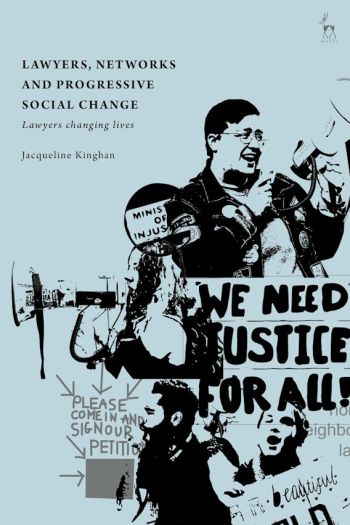
Written by a lawyer who works at the intersection between legal education and practice in access to justice and human rights, this book locates, describes and defines a collective identity for social justice lawyering in the UK.
Underpinned by theories of cause lawyering and legal mobilisation, the book argues that it is vital to understand the positions that progressive lawyers collectively take in order to frame the connections they make between their personal and professional lives, the tools they use to achieve social change, as well as ethical tensions presented by their work.
The book takes a reflexive ethnographic approach to capture the stories of 35 lawyers working to positively transform law and policy in the UK over the last 50 years. It also draws on a wealth of primary sources including case reports, historic campaign materials and media analysis alongside wider ethnographic interviews with academics, students and lawyers and participant observation at social justice conferences, workshops and events.
The book explains the way in which lawyers' networks facilitate their collective positioning and influence their strategic decision making, which in turn shapes their interactions with social activists, with other lawyers and with the state itself.